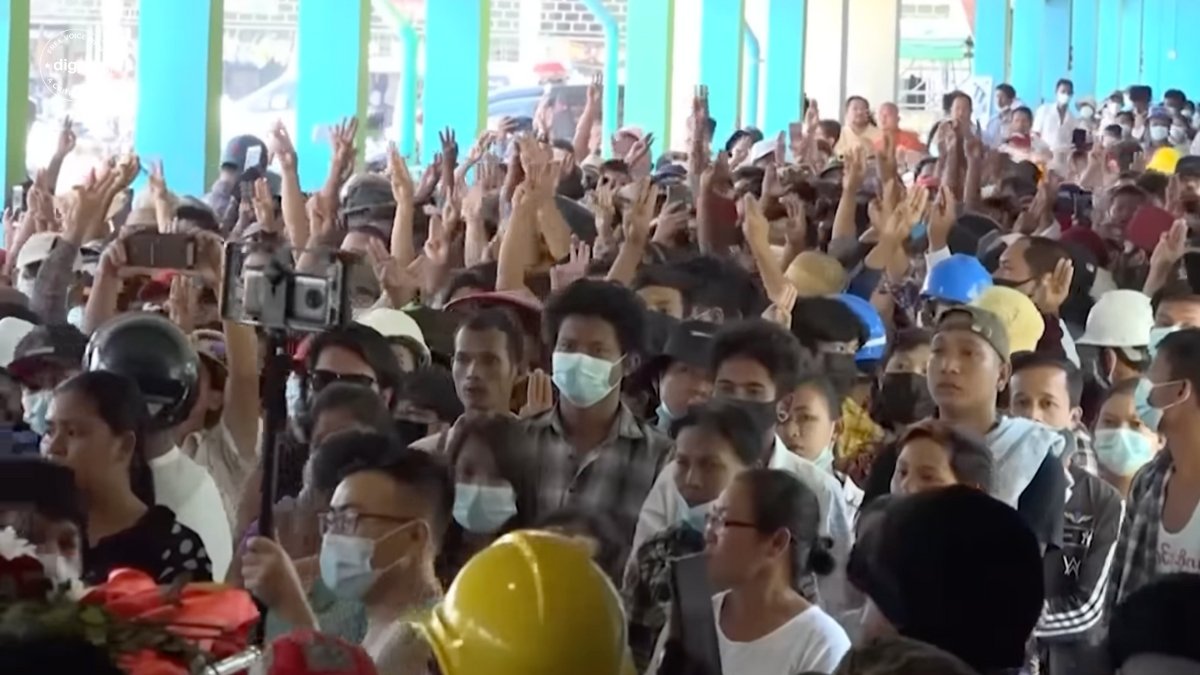Myanmar, 08 April, 2024: : Weeks following the imposition of a nationwide draft by Myanmar’s military government, the country witnesses a divergence in paths chosen by its youth. Amidst the mounting pressure of conscription, two young women from disparate corners of Myanmar venture into the jungles to join the resistance against the ruling junta. Simultaneously, two men in their thirties, residing in the nation’s urban hubs, opt to abandon their lives and seek refuge across the border in Thailand.
The decisions made by these individuals provide a stark insight into the prevailing turmoil within Myanmar, where a burgeoning military opposition poses the most formidable challenge to the junta since its usurpation of power through a coup in 2021.
The military regime, citing a 2010 law, announced in February that all men aged 18 to 35 and women aged 18 to 27, along with specialists such as doctors up to the age of 45, are mandated to serve in the military for up to three years. This edict potentially encompasses approximately 14 million people, constituting 27% of Myanmar’s population, with an annual call-up of around 60,000 individuals. Despite these figures, precise estimations regarding the current size of the armed forces, rebel factions, or the number of individuals evading conscription remain elusive.
The junta’s directive comes in response to a rebel offensive initiated in October, which has emerged as the most significant threat to the regime since the coup that ousted Nobel laureate Aung San Suu Kyi’s civilian government.
Reflecting on her decision, one of the young women, an 18-year-old computer science student hailing from Myanmar’s Mon state, articulates her resolve to join the armed wing of the Karen National Union rebel group, underscoring her lack of apprehension towards combat. Conversely, in Bangkok, one of the fleeing men, a 32-year-old native of Mandalay, recounts the abrupt upheaval of his life, compelled by the looming specter of conscription.
Both groups of individuals, wary of potential repercussions, opt to remain anonymous as they navigate their newfound circumstances, marked by the initiation of military training and the issuance of notices by local authorities.
While pro-government narratives showcase young men embarking on military training, the sustained conflict has severely depleted the strength of most military units, necessitating the enforcement of conscription laws. Despite concerns regarding its adverse impact on the economy, analysts remain skeptical about its deterrence effect on the junta’s conscription agenda.
Reflecting on the recurrent cycles of crisis since the 1960s, Myanmar expert Tun Myint emphasizes the exodus of educated individuals, foreseeing a bleak future for the country’s youth. For many like a 21-year-old woman from central Myanmar, the political upheaval compounded by the COVID-19 pandemic has disrupted aspirations, compelling them to seek refuge in armed resistance movements.
Similarly, the man from Mandalay, once an aspiring engineer, grapples with a sense of despondency, lamenting the absence of tangible prospects in the face of pervasive uncertainty.
As Myanmar grapples with escalating tensions and a deepening humanitarian crisis, the divergent paths chosen by its youth underscore the multifaceted challenges confronting the nation’s socio-political landscape.
Disclaimer: The source of this news information is Reuters, and this article has been rewritten by Digpu News staff for clarity and conciseness.


